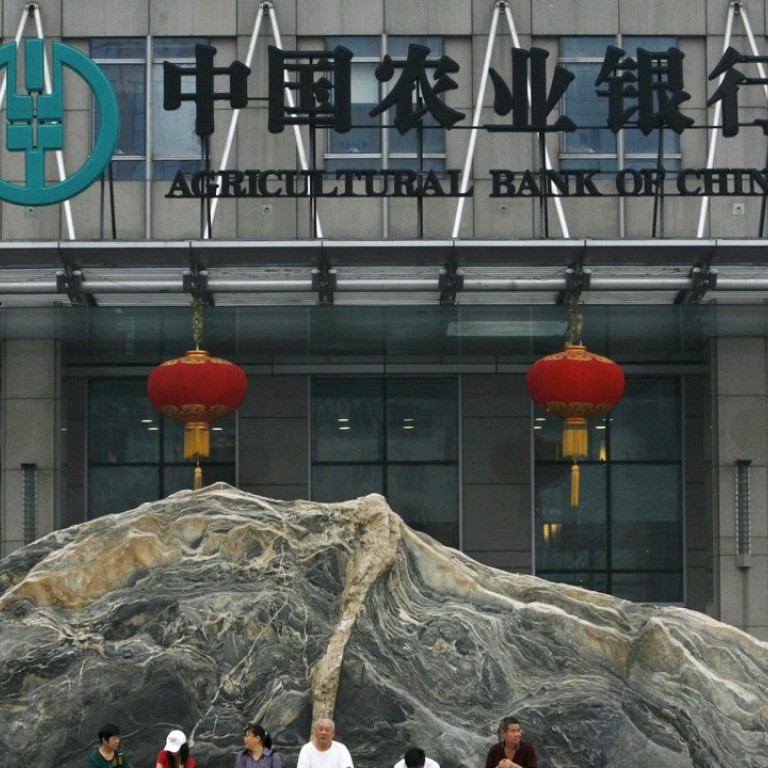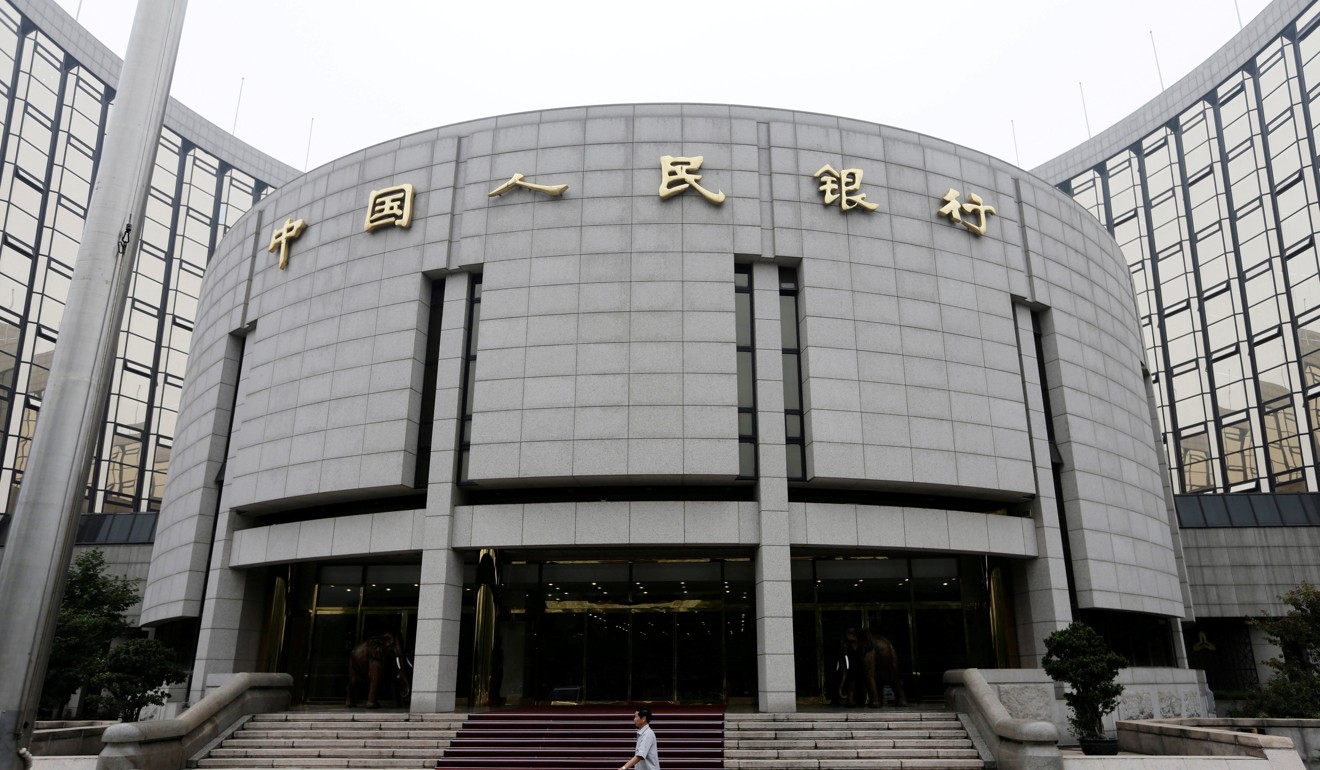
With late night social media post, Chinese state lender underscores anxious mood of nation
Late on Tuesday night, the Agricultural Bank of China took the unusual step of turning to social media to rebut media rumours it was under special scrutiny by the industry watchdog.
The bank, one of the nation’s Big Four lenders, admitted the regulator was carrying out a review of its operations, but said the process was standard and prearranged. Its wealth management business had not been singled out for special scrutiny, the bank said on its official Weibo account at 10.50pm on Tuesday, contradicting the media reports.
The bank’s refutation on its Weibo account, which is otherwise filled with basic financial advice and quotes from fortune cookies, came at a time of high anxiety over China’s money market. The People’s Bank of China, the nation’s central bank, has become less generous in providing funds, while the industry watchdog, the China Banking Regulatory Commission, is pressing lenders to clean up their shadow banking activities.
“From the perspective of financial stability, there is still strong financial stress in the system at the moment, no matter whether it’s the total debt level or its problematic structures,” said Li Wei, professor of economics at Cheung Kong Graduate School of Business. “Any small sign of disturbance could reverberate in the market.”

Much of that money is then channelled into corporate bonds, property projects and other structured, repackaged products with problematic underlying assets, amplifying financial risk.
Banks are also tapping the money market as a source of cheap funding, but as the interbank market dries up and market interest rates rise, defaults are increasing, hurting financial products and trust investment plans. A slew of scandals in recent months has also made investors nervous about wealth management products at Chinese banks.
In April, more than 1.6 billion yuan vanished from a Beijing branch of China Minsheng Bank after investors found the products they purchased from the bank didn’t exist. The bank pledged to clean up the mess. In December, Sealand Securities, a major brokerage house, refused to honour a bond deal involving 10 billion yuan, saying the employee who signed off on it had forged company seals, exposing at least 22 counterparts to losses. The China Securities Regulatory Commission said on Friday it would suspend the brokerage house’s wealth management and bond underwriting businesses for a year.
Tim Condon, head of research at ING Asia in Singapore, said Beijing was aware of the dangers arising from high leverage and contagious risks, but it was tricky to devise a response without causing a credit crunch or hurting economic activities.
“There are still very fresh memories of June 2013, when authorities began tightening up on shadow banking. At that time, interbank rates skyrocketed, and there was a great fear that there could be a financial crisis,” Condon said.
As it tries to strike a balance between reducing risk and ensuring a sufficient flow of funding to keep growth on track, Beijing has taken an on-and-off attitude towards squeezing shadow banking.
“Allowing shadow banking to go further from here would make the system ever more vulnerable to even small trembles in the economy and liquidity conditions,” Yao Wei, chief China economist at Societe Generale, wrote in a recent report.
But a strong belief that the government will always be ready with a bailout has made it difficult to effectively tackle risks created by shadow banking.
“There is still a deep-rooted moral hazard in the market believing that the government will be the ultimate guarantor for all credit risks,” said Claire Huang, a Hong Kong-based China economist at Societe Generale.
Zhu Haibin, chief China economist at JPMorgan, said Beijing was using a trial and error approach to manage financial risk.
“The government seems to be wary of policy risks related to financial deleveraging efforts,” Zhu wrote in a note. “Financial deleveraging will continue in the coming months, but restricted by the policy consideration that it should not trigger financial distress or jeopardise the growth outlook.”

